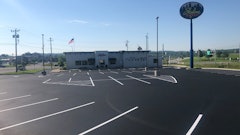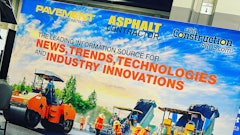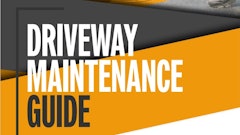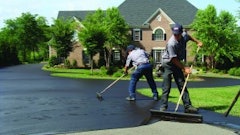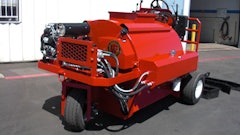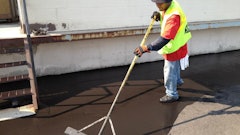USGS backs off coal tar sealer claims
Following a challenge from a coalition of sealer producers, the U.S. Geological Survey has acknowledged it will revise some of results released concerning refined coal tar sealer and that errors were made in calculations relating to coal tar sealers and pavement runoff in a study the USGS conducted for the City of Austin, TX.
According to Bob DeMott an environmental consultant for Environ International, which was hired by the coalition to assist in its challenge to the USGS study, the USGS sent a letter to the coalition saying it will revise the report.
"The letter acknowledged some numerical inaccuracies and some details that were omitted from the report," DeMott said. "The letter stated the USGS would revise the report accordingly."
Forcing the USGS to reconsider some of the conclusions it drew is important, but DeMott says what's more important is the chain reaction that re-evaluation could cause.
"The USGS study was the basis for separate analyses that went into a scientific journal article that concluded coal tar-based pavement sealer was the predominant source of combustion byproducts [PAHs] in Austin. This, in turn, was used by the city of Austin in its decision to ban coal tar sealer," DeMott said.
The journal article relied on results presented in the USGS report in preparing a mathematical analysis of pavement sealer's impact on the environment.
"It would seem that the journal article analysis would have to be redone," DeMott said. "Austin might reconsider the more accurate information ultimately, but the first step is the revised USGS report."
DeMott said the coalition of sealer producers challenged the USGS study through a specific administrative process under the Federal Data Quality Act.
"This was the first successful challenge to USGS under the Act," DeMott said.
At press time the USGS had not announced when it will issue the report revision.
Ingersoll Rand to sell Road Development Unit
Rand Co., Shippensburg, PA, has agreed to sell its Road Development business unit to AB Volvo for $1.3 billion.
The Road Development business unit manufactures and sells asphalt paving equipment, compaction equipment, milling machines, and construction-related material handling equipment. The sale includes manufacturing facilities in Letterkenny and Shippensburg, PA; Germany; China; India; and 20 distribution and service facilities in the U.S.
"The Road Development business has been a strong contributor to Ingersoll Rand's success for several decades and remains an industry leader with dedicated and talented employees," said Herbert L. Henkel, chairman, president, and CEO. "The sale reflects our strategy to transition away from capital-intense, heavy-machinery businesses and improves the company's efforts to consistently achieve aggressive financial objectives over the long term."
Letter to Editor: An Asphalt Experience
I started in 2000 as an applicator of coal tar products - great product! Based on research in 2002 we changed to asphalt emulsions because of environmental and health problems associated with coal tar. Our change was easy and is embraced by our clients. They know they have to reseal every 2 to 3 years, so what's the problem? If applicators treat the sealer like coal tar and add sand and other additives for longevity, etc. you will receive the same tenure as coal tar. The last 5 years we have found it to be just as good or better in some instances as the coal tar product. It's blacker when dry, no smell, no burns and no environmental concerns .
I understand it is challenging for coal tar manufacturers/applicators to switch to an asphalt-based product. But, like the lead-based paint and asbestos, we learn and things change. Coal tar manufacturers and applicators may have to admit the products they were defending weren't as safe or as superior as the new products available now. Manufacturers of asphalt formulas for years have been eliminating the problems and are finding better methods, ingredients, and processes to make the products even better. The ridiculous speculation in your article of a potential shortage in asphalt because of crude oil availability is just ignorant. Gasoline would be $5-plus a gallon (I don't think so). The bottom line is, manufacturers and applicators alike need to embrace the change and use it to their advantage. This is a chance for manufacturers to be environmentally responsible (and make more money at the same time) by taking advantage of the change in the industry. The applicators will benefit by putting down a product that is safer for them as applicators and is environmentally friendly. So, embrace the change and you may find out that's it's not really as bad as some would like you to believe.
- Dave Fortenbacher, Asphalt Seal Coating Inc., Grand Haven, MI

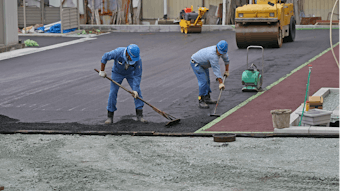



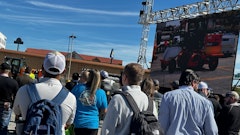
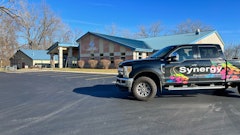

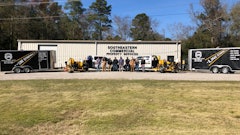




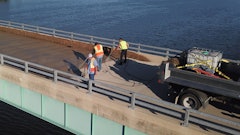



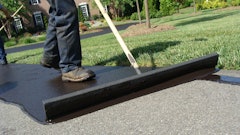
![Screen Shot 2023 01 04 At 5 23 30 Pm[35]](https://img.forconstructionpros.com/files/base/acbm/fcp/image/2023/01/Screen_Shot_2023_01_04_at_5.23.30_PM_35_.63bc42696de27.png?auto=format%2Ccompress&fit=crop&h=135&q=70&w=240)
